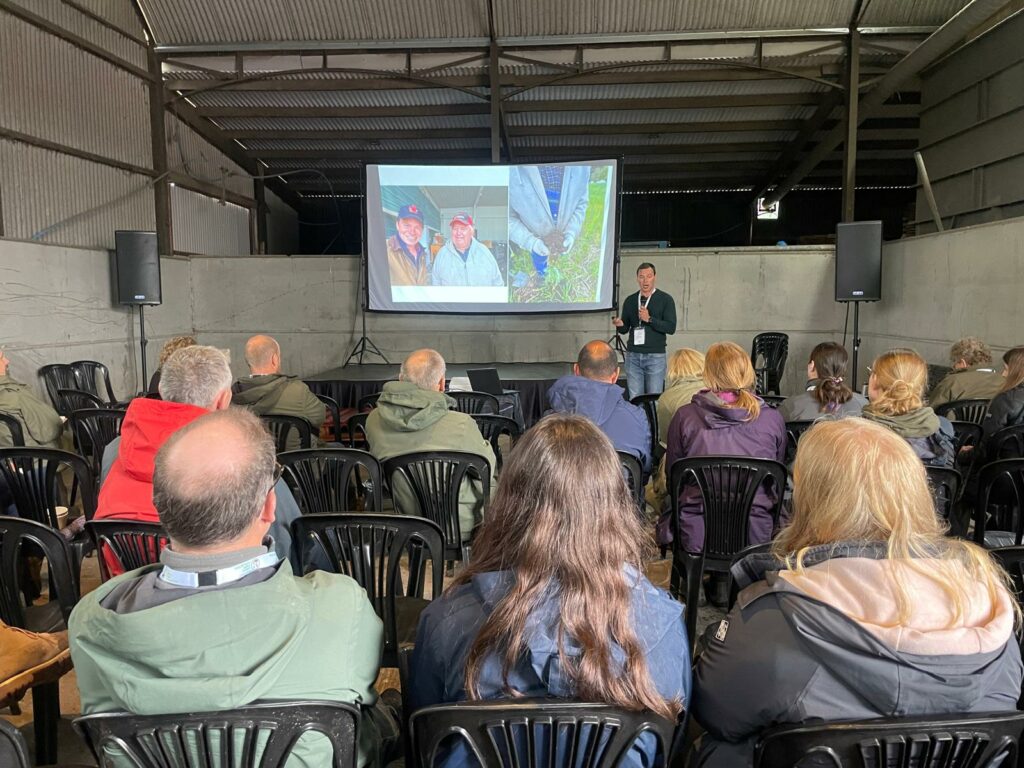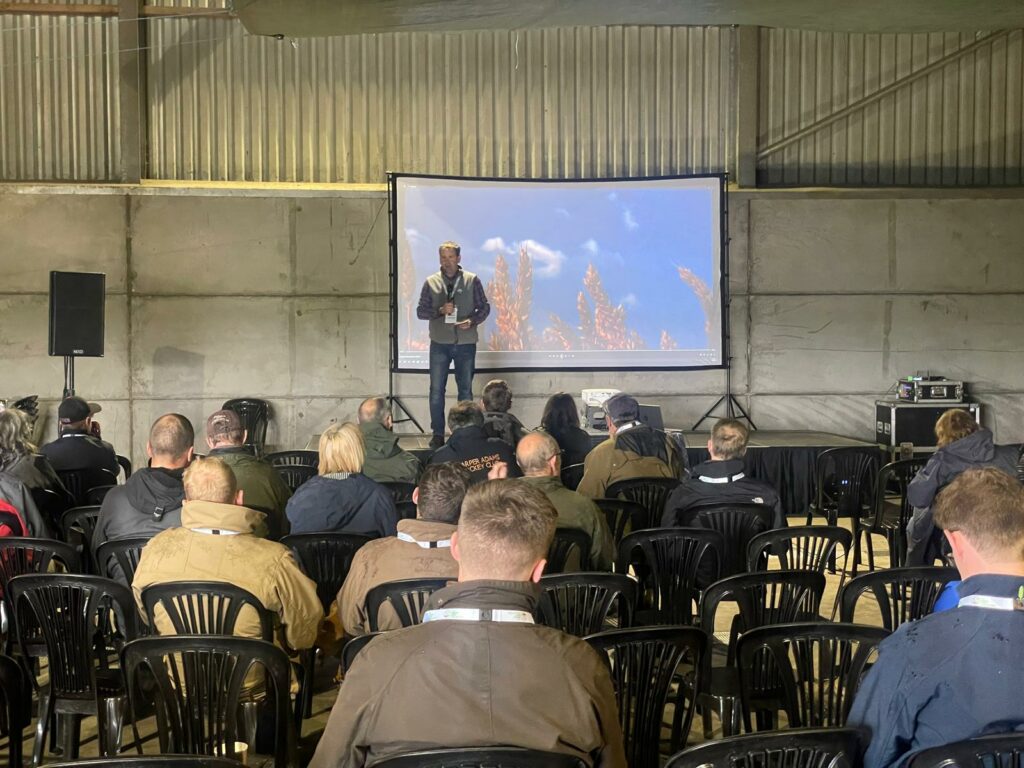The Regenerative Agriculture Conference 2024, organised by the Green Farm Collective, brought together industry experts, Nuffield scholars, and innovative growers at Church Farm near Wolverhampton. Hosted by Michael Kavanagh, the event on 22 May 2024, was a landmark gathering focused on sustainable agricultural practices, attracting around 200 participants.
Soil Health and Sustainable Practices
Neil Fuller’s presentation on carbon and nutrient density emphasised the critical role of soil health in boosting crop nutritional value. Fuller advocates for practices that increase organic matter, which sequesters carbon and enhances soil structure and fertility.
One of the more controversial yet insightful discussions was led by Professor Andy Neal of Rothamsted Research, who explored the impacts of glyphosate use versus traditional tillage on soil health. Neal presented data from various studies, including those from the North Wyke Farm Platform, illustrating the trade-offs between these practices. He highlighted that while glyphosate can reduce the need for tillage, its application must be carefully managed to avoid long-term soil degradation. Neal noted, “Glyphosate breaks down much more rapidly in aerobic conditions,” emphasising the importance of maintaining a soil structure rich in organic matter and pore space to support oxygen availability.
Innovations and Practical Applications
A significant development highlighted at the conference was the progress in regenerative wheat supply chains. The Green Farm Collective, in collaboration with Eurostar Commodities, is set to launch two brands of regenerative flour sourced entirely from its farms. This initiative aims to establish new standards with Food Integrity Assurance, focusing on critical areas such as soil protection, crop rotation, reduction in synthetic chemical use, and enhancement of biodiversity.
Stephen Sanderson introduced the FIA GFC Regenerative Standards, guidelines designed to support the Collective’s mission. These standards are outcome-based, promoting consistency and integrity in regenerative practices. Diane Crabtree’s presentation on regenerative flour markets highlighted the growing demand for sustainably produced flour driven by ethical consumerism. Crabtree noted the increasing prioritisation of products offering health benefits and environmental sustainability by consumers and retailers.

Integrating Animal Health and Ecosystem Services
The conference also featured sessions on integrating livestock management with regenerative principles. Lee Truelove, Head of Regenerative Farming, shared insights from the regenerative dairy sector, emphasising the benefits of rotational grazing. His data showed significant increases in soil organic matter and carbon sequestration on farms adopting these practices. Claire Whittle’s session on natural capital for animal health explored the concept of viewing farms as ecosystems, advocating for disease management practices that enhance the resilience of both livestock and ecosystems.
Crop Innovation: Breeding for a Sustainable Future
Ron Granger’s presentation on regenerative crop varieties highlighted advancements in crop breeding. The Limagrain Initiative aims to develop wheat varieties suited to regenerative farming systems, focusing on traits such as high disease resistance, robust rooting ability, and adaptability to reduced input systems. Granger’s findings indicated a strong preference among growers for these traits, aligning breeding efforts with the needs of regenerative agriculture.
Green Innovation Award
A notable highlight was the announcement of the first-ever Green Innovation Award. The £10,000 prize was awarded to Sarah Dusgate, a tenant farmer in Monmouthshire, for her project using pigs to establish herbal leys. This innovative approach aims to enhance soil health and biodiversity through integrated livestock and crop systems.
The conference concluded with interactive Q&A sessions, allowing participants to engage directly with experts. Discussions ranged from the economic viability of regenerative practices to the challenges of transitioning from conventional farming methods. The consensus was clear: regenerative agriculture offers a path toward a more sustainable and resilient future, requiring a collective effort and ongoing innovation.
Save the date for next year’s conference on 21 May 2025, promising another round of insightful discussions and groundbreaking innovations in sustainable farming.
To find out more about the Green Farm Collective, visit greenfarmcollective.com


